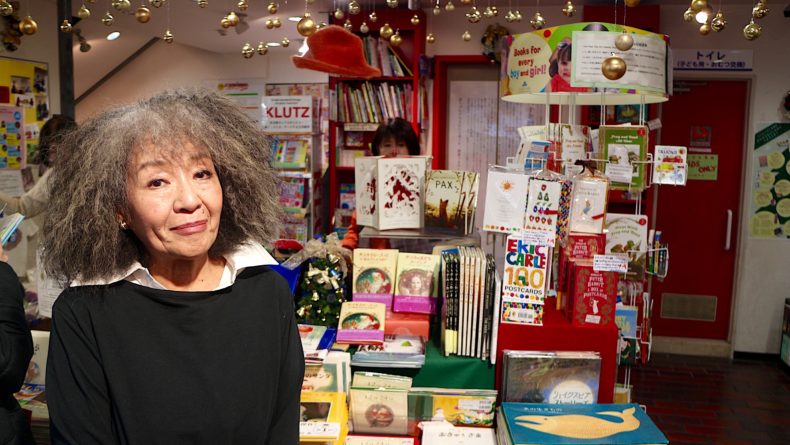Confessions & Confusions: Dealing With Comments About My Family
What Do People Say When You Tell Them The Truth?
Welcome to “Confessions & Confusions,” Melodie’s monthly advice column on fostering and adoption in Japan. Here, she'll be answering common questions from potential adoptive or fostering parents, as well as those who have already been through the system — or, in fact, anybody who just needs to let off some parent-related steam. Got a question? Leave a comment or send us an email at editorial@gplusmedia.com.
I’m so grateful to all of you for taking the time to read the story about my adoption and fostering journey, commenting positively on them — especially to those of you who’ve asked for more. I’ve suddenly found myself an accidental advocate for adoption and fostering in Japan now and I’m happy to have a receptive audience for what I have to say. I’m not an expert — I’m just sharing my story — but thanks to my ever-widening network of foreign adoptive and foster parents, I’m constantly learning and I’m happy to be the mouthpiece for so many people embarking on the same journey.
As a start, I would like to answer a question I frequently get asked, not only by you, but by other people around me: “How do people react when you tell them that your son is adopted and you have a foster daughter?”
The Embarrassment Assumption Response
About eight years ago, several weeks before we were about to move to our current prefecture with our recently adopted son, I was working out in a gym near my house. A neighbor’s European wife and I were chatting while we exercised on adjacent treadmills. I told her about our situation and she said, “It’s good that you’re going to a new prefecture. No one will know that he’s not yours.” To me, her saying this meant that by moving we were sparing ourselves the embarrassment of others knowing that we had to adopt a child in order to have a family.
The “Lucky Child” Response
Trying to be positive, a former colleague said, “Your son won the lottery.” At first, it was pleasing to think others thought that my husband and I — although completely inexperienced at first — would be totally awesome parents, but that put a lot of pressure on me to be “perfect,” an idea which is echoed in Sharon Astyk’s blog post, “What Foster Parents Wish Other People Knew.” Astyk’s point is that if foster parents are regarded as saints, it’s harder for us to be imperfect, non-super-humans who might need help from time to time.
The Trying-Too-Hard Response
This past obon (Festival of the Dead), we went to visit my mother-in-law to introduce our foster daughter to her for the first time. My mother-in-law is a sweetheart and a tough cookie, but I couldn’t help but think that she kept trying to find things that made us look like, in her mind, a “real” family. She told me that my daughter resembled me. I thanked her for the compliment because my foster daughter is an incredible beauty, but we look nothing alike and except for the silly sense of humor I am cultivating in her, we have nothing in common physically or temperamentally.
To me, her saying this meant that by moving we were sparing ourselves the embarrassment of others knowing that we had to adopt a child in order to have a family.
Another time, dear MIL commented, post-ofuro, how my son, daughter, and I had pink cheeks and resembled each other. “We all just got out of the bath,” my husband said. Again, we are all as different as a handful of pick and mix, but she seems compelled to find commonalities. I’m not sure why. Is she embarrassed that we had to adopt and foster in order to create a family and doesn’t want to have to answer her friends and neighbors questions or address their comments about us? Surely they must know something’s up if we suddenly show up with a 4-year-old child one day and then seven years later with a 12-year-old?
The Prevention Attack
In fact, when I first told my mother-in-law we were going to foster, she begged us not to. Her argument was that she had heard about a foster child who had stabbed his parents to death. I guess she was just looking out for us, but I was shocked by what I thought to be her lack of compassion. Her beliefs about foster children, however, are not uncommon in Japan. In a piece I wrote about adoptive families for The Japan Times in 2014, the foreign adoptive parents I interviewed talked about how their in-laws didn’t recognize their adoptive children; strangers said rude things about adoptive children having “bad blood” and other families flat-out insisted that Japanese people don’t adopt.
What Do I Say?
Yeah, we’re old and somewhat broken, but we’re not ashamed of our family. We’re open with our son about his adoption. Of course, this is easier for us because he remembers his orphanage life, so he’s always known we are not his biological parents. We don’t feel any need to pretend our relationship is anything other than what it is. We hope that in this day and age people will stop perpetuating the idea that adoption is somehow a shameful thing that needs to be hidden.
[…] if foster parents are regarded as saints, it’s harder for us to be imperfect non-super-humans who might need help from time to time.
Although we and our children face challenges, so does any family. One mother who had been following my blog told me about her persistent challenges with one of her biological children — every family has trials to face and while a higher percentage of institutionalized children are likely to have cognitive, developmental and learning disorders, I’ve met people who were not treated very well by their biological families and suffered the same fate.
Although we and our children face challenges, so does any family.
As to my mother-in-law, I believe she will come around eventually. She didn’t want my husband to get serious with a foreigner in the first place and she wasn’t fully in favor of us adopting our son. But the foreigner supports the family and the son is popular with his cousins, so things have not worked out as badly as she expected. She expects the worst and hopes for the best as any mother would, so while I’m familiar with her modus operandi, I don’t have to like it.















